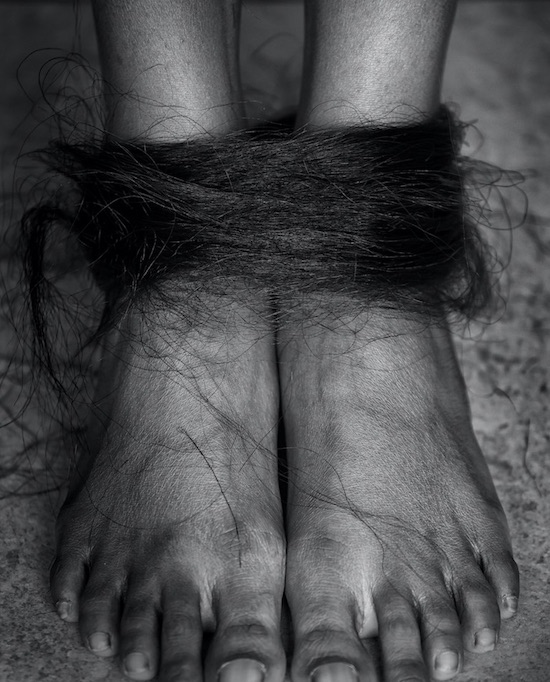Unraveling the Patriarchy's Problem with Women's Hair
Photographer Rohit Chawla has produced "Hair and Her," a project conceived alongside FCB India creative chair Swati Bhattacharya.
The film depicts a woman who is bound by her hair. It eclipses her entire body, so her face isn't visible, and wraps around her hands and ankles. Bit by bit, she cuts through until she can face the camera directly.
The film is accompanied by a text, which reads:
"It is the 22nd of October 2022, and a 22 year old girl has just lost her life because a tendril of her hair escaped her hijab.
In Harlem, a little African American girl is burning her hair, striving to look like the straight haired women in the Tik Toks, music videos and billboards all around her.
In Vrindavan, a widow is shaving her hair, like countless widows just like her, being forced to do so after the passing of their husbands, now that her beauty has no further use.
In the Mahabharat, Dushasana is dragging Draupadi by her hair, a man controlling the will of a woman through her hair, as millions of men will do, to millions of women, across cultures, geographies and timelines.
Covered, controlled, cut down to size, a woman’s hair has been tangled with the patriarchy forever. The Politics of Hair is its history, hitherto hidden behind headlines, today—presented through them. The donation box, asking every viewer to cut her, their and his hair, is a call to break with it."
The work's spirit brought a number of things to mind—like the politics of Black hair in America, a topic whose insidious violence exploded into mainstream salience after the release of Beyoncé's Lemonade.
We were also reminded of the ancient Greek myth of Medusa. Best remembered us as a monster whose snake tendrils turned men into stone, it's less commonly known how she got that way. Medusa was an Athenian priestess with exceptionally beautiful hair, so apparently irresistible that the sea god, Poseidon, rapes her on the temple floor.
In the distressingly unsurprising way of these things, the goddess Athena punishes her priestess and not her brother, by transforming the once-beautiful hair into snakes. Medusa goes into hiding. Athena tells the Greek hero Perseus where she is, describing her as a dangerous monster. Perseus beheads her while she sleeps.
As the text of "Hair and Her" observes, the problem here is thousands of years old, not specifically symptomatic of modern culture. Patriarchies aren't new, but they also weren't the only, nor even the most successful, way to organize a civilization; we take that for granted today. Classical Greece was already a patriarchy—one that subsumed more egalitarian cultures, and actively policed women's appearances. It is also the blueprint from which we’ve designed western civilization. And as it spread, it strengthened every patriarchal narrative in its path.
Focusing on hair unpacks all this and more. Hair spreads pheromones. It seems to make promises of which the owner is unaware, but for which she is clearly still punished, a norm that almost entirely escapes notice. But we should notice it. It's an old story, but notan inevitable one.
Alongside accompanying installations, "Hair and Her" was shown at the India Art Fair in Delhi this month.














